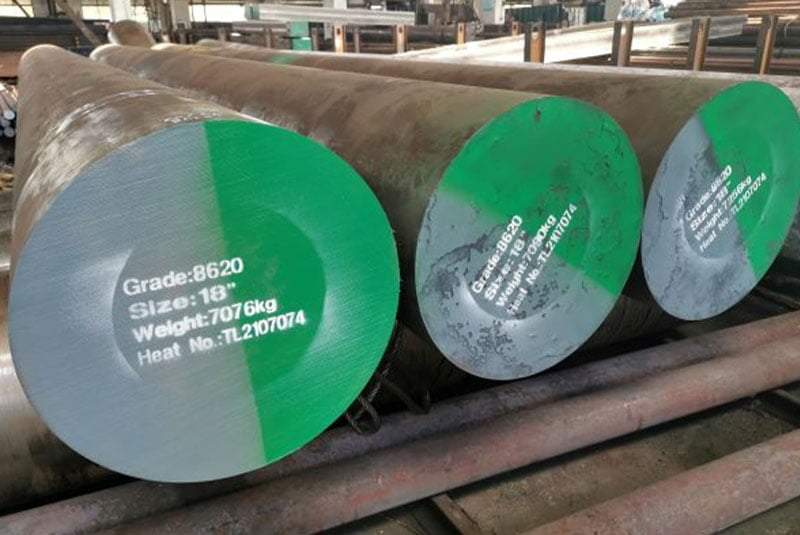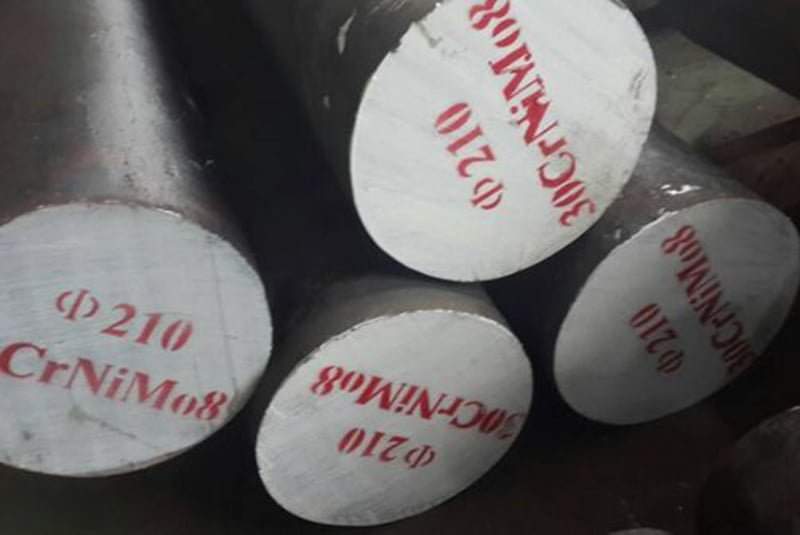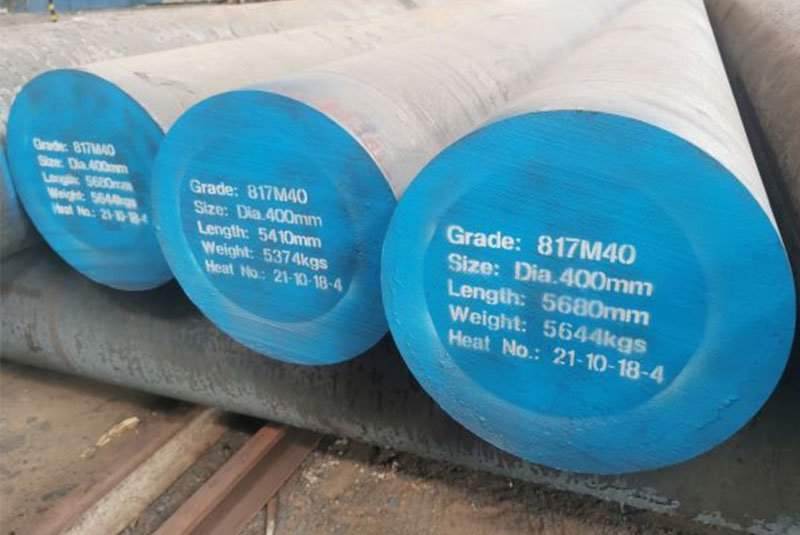Introduction
Steel alloys are essential in various industries due to their unique properties and versatility. Understanding how steel alloy material properties affect performance is crucial for selecting the right alloy for specific applications. This comprehensive guide delves into the key properties of steel alloys, their impact on performance, and their applications in different industries. By the end of this article, you will have a thorough understanding of how these properties influence the effectiveness and suitability of steel alloys for various purposes.
Understanding Steel Alloy Material Properties

What are Steel Alloys?
Steel alloys are mixtures of iron with other elements such as carbon, chromium, nickel, and molybdenum. These elements enhance the properties of the steel, making it suitable for a wide range of applications. The combination of elements determines the specific characteristics and performance of the steel alloy.
- Definition: Mixtures of iron with other elements.
- Common Elements: Carbon, chromium, nickel, molybdenum.
- Purpose: Enhance properties for various applications.
Key Properties of Steel Alloys
The properties of steel alloys can be broadly categorized into mechanical, physical, and chemical properties. Each of these properties plays a significant role in determining the performance and suitability of the alloy for specific applications.
- Mechanical Properties: Strength, hardness, ductility, toughness.
- Physical Properties: Density, thermal conductivity, electrical conductivity.
- Chemical Properties: Corrosion resistance, oxidation resistance, chemical stability.
Mechanical Properties of Steel Alloys
Strength
Strength is one of the most critical properties of steel alloys. It determines the ability of the material to withstand applied forces without deforming or breaking. There are different types of strength, including tensile strength, compressive strength, and yield strength.
- Tensile Strength: Resistance to being pulled apart.
- Compressive Strength: Resistance to being compressed or squashed.
- Yield Strength: The stress at which a material begins to deform plastically.
Hardness
Hardness refers to the ability of the steel alloy to resist deformation, indentation, and scratching. It is a crucial property for applications where wear resistance is essential.
- Measurement: Typically measured using the Rockwell, Brinell, or Vickers hardness tests.
- Applications: Cutting tools, wear-resistant surfaces.
Ductility
Ductility is the ability of the steel alloy to be stretched or deformed without breaking. It is an important property for materials that need to be shaped or formed through processes such as drawing or rolling.
- Importance: Allows the material to undergo plastic deformation.
- Applications: Structural components, wires, and cables.
Toughness
Toughness is the ability of the steel alloy to absorb energy and withstand shock or impact without fracturing. It combines strength and ductility, making it essential for applications subjected to sudden forces or impacts.
- Measurement: Typically measured using impact tests such as the Charpy or Izod tests.
- Applications: Automotive components, construction materials.
Physical Properties of Steel Alloys
Density
Density is the mass per unit volume of the steel alloy. It affects the weight of the material and its suitability for applications where weight is a critical factor.
- Calculation: Mass divided by volume.
- Applications: Aerospace, automotive, and construction industries.
Thermal Conductivity
Thermal conductivity is the ability of the steel alloy to conduct heat. It is an important property for applications involving heat exchange or temperature control.
- Importance: Determines how well the material can transfer heat.
- Applications: Heat exchangers, engine components.
Electrical Conductivity
Electrical conductivity is the ability of the steel alloy to conduct electricity. While steel alloys are not typically known for high electrical conductivity, this property can be enhanced for specific applications.
- Measurement: Conductivity is measured in Siemens per meter (S/m).
- Applications: Electrical components, conductive materials.
Chemical Properties of Steel Alloys

Corrosion Resistance
Corrosion resistance is the ability of the steel alloy to withstand degradation due to chemical reactions with the environment, such as rusting. Elements like chromium and nickel enhance this property.
- Importance: Essential for applications exposed to harsh environments.
- Applications: Marine structures, chemical processing equipment.
Oxidation Resistance
Oxidation resistance is the ability of the steel alloy to resist oxidation at high temperatures. This property is crucial for materials used in high-temperature applications.
- Enhancement: Achieved by adding elements like chromium and aluminum.
- Applications: Furnace components, exhaust systems.
Chemical Stability
Chemical stability refers to the ability of the steel alloy to maintain its properties when exposed to chemicals. This property is important for applications involving exposure to acids, alkalis, or other chemicals.
- Importance: Ensures longevity and reliability in chemical environments.
- Applications: Chemical processing plants, laboratory equipment.
Table: Comparison of Steel Alloy Material Properties
| Property | Description | Importance | Common Applications |
|---|---|---|---|
| Tensile Strength | Resistance to being pulled apart | Determines load-bearing capacity | Bridges, buildings |
| Hardness | Resistance to deformation and scratching | Essential for wear resistance | Cutting tools, wear-resistant surfaces |
| Ductility | Ability to be stretched or deformed | Important for forming and shaping | Structural components, wires |
| Toughness | Absorption of energy and shock | Crucial for impact resistance | Automotive components, construction |
| Density | Mass per unit volume | Affects weight and material selection | Aerospace, automotive, construction |
| Thermal Conductivity | Ability to conduct heat | Important for heat exchange | Heat exchangers, engine components |
| Electrical Conductivity | Ability to conduct electricity | Important for electrical applications | Electrical components, conductive materials |
| Corrosion Resistance | Withstand degradation from environment | Essential for longevity | Marine structures, chemical equipment |
| Oxidation Resistance | Resist oxidation at high temperatures | Important for high-temperature applications | Furnace components, exhaust systems |
| Chemical Stability | Maintain properties in chemical exposure | Ensures reliability in chemical environments | Chemical plants, lab equipment |
Impact of Steel Alloy Material Properties on Performance

Construction Industry
In the construction industry, the performance of steel alloys is critical for ensuring the safety and durability of structures. Properties such as tensile strength, toughness, and corrosion resistance are essential for building bridges, skyscrapers, and other infrastructure.
- Structural Integrity: High tensile strength and toughness ensure stability.
- Longevity: Corrosion resistance extends the lifespan of structures.
- Safety: Reliable performance under various conditions.
Automotive Industry
Steel alloys are widely used in the automotive industry due to their excellent mechanical properties. High strength, toughness, and impact resistance are crucial for manufacturing components such as chassis, engine parts, and safety features.
- Durability: High-strength alloys withstand heavy loads and impacts.
- Safety: Toughness and impact resistance protect passengers.
- Efficiency: Lightweight alloys improve fuel efficiency.
Aerospace Industry
The aerospace industry demands materials with exceptional performance characteristics. Steel alloys with high tensile strength, thermal conductivity, and corrosion resistance are essential for manufacturing aircraft components.
- Weight Reduction: High strength-to-weight ratio is crucial for performance.
- Thermal Management: Effective thermal conductivity for engine components.
- Reliability: Corrosion resistance ensures long-term performance.
Oil and Gas Industry
In the oil and gas industry, steel alloys are exposed to harsh environments and high pressures. Corrosion resistance, toughness, and chemical stability are vital for ensuring the safe and efficient operation of equipment.
- Safety: High toughness and strength for pressure-containing equipment.
- Corrosion Resistance: Essential for offshore and subsea applications.
- Chemical Stability: Ensures performance in chemical exposure.
Manufacturing Industry
In manufacturing, steel alloys are used for machinery, tools, and components that require high durability and precision. Properties such as hardness, wear resistance, and ductility are critical for maintaining performance and efficiency.
- Precision: High hardness and wear resistance for cutting tools.
- Durability: Toughness and ductility for machinery components.
- Efficiency: Reliable performance under continuous use.
Conclusion
Understanding the material properties of steel alloys and their impact on performance is crucial for selecting the right alloy for various applications. By considering factors such as mechanical, physical, and chemical properties, industries can optimize the use of steel alloys to enhance durability, efficiency, and safety. Whether in construction, automotive, aerospace, oil and gas, or manufacturing, the right choice of steel alloy material properties can significantly influence the success and longevity of projects and products.
FAQ
What are the essential steel alloy material properties?
The essential steel alloy material properties include tensile strength, hardness, ductility, toughness, thermal conductivity, electrical conductivity, corrosion resistance, oxidation resistance, and chemical stability. These properties determine the alloy’s performance and suitability for various applications.
How do steel alloy material properties affect their applications in the construction industry?
Steel alloy material properties such as tensile strength, toughness, and corrosion resistance are crucial in the construction industry. High tensile strength and toughness ensure structural integrity and stability, while corrosion resistance extends the lifespan of buildings and infrastructure.
Why is thermal conductivity an important steel alloy material property for engine components?
Thermal conductivity is a vital steel alloy material property for engine components because it determines the alloy’s ability to conduct heat. Efficient thermal conductivity ensures proper heat dissipation, preventing overheating and improving the overall performance and longevity of the engine.
How does the hardness of steel alloys impact their use in cutting tools?
The hardness of steel alloys is a critical material property for cutting tools. High hardness levels provide wear resistance, ensuring that the cutting edges remain sharp and effective for longer periods, thus enhancing the tool’s performance and lifespan.
What role does ductility play in the performance of steel alloys?
Ductility, a key steel alloy material property, allows the alloy to be stretched or deformed without breaking. This property is essential for manufacturing processes such as drawing, rolling, and forming, where the material needs to undergo significant plastic deformation.
How do steel alloy material properties influence their use in the automotive industry?
In the automotive industry, steel alloy material properties like strength, toughness, and impact resistance are paramount. These properties ensure that components such as chassis, engine parts, and safety features can withstand high stresses and impacts, enhancing vehicle safety and durability.
Why is corrosion resistance a crucial steel alloy material property for marine applications?
Corrosion resistance is a crucial steel alloy material property for marine applications because it prevents degradation due to exposure to seawater and harsh marine environments. This property ensures the longevity and reliability of marine structures and equipment.
How does the density of steel alloys affect their use in aerospace applications?
The density of steel alloys affects their use in aerospace applications because a lower density can significantly reduce the overall weight of aircraft components. A high strength-to-weight ratio, a desirable steel alloy material property, improves fuel efficiency and performance.
What is the significance of chemical stability in steel alloys used in chemical processing plants?
Chemical stability is a significant steel alloy material property for applications in chemical processing plants. It ensures that the alloy maintains its properties when exposed to various chemicals, thereby providing reliability and longevity in corrosive environments.
How do steel alloy material properties enhance the performance of oil and gas equipment?
Steel alloy material properties such as toughness, corrosion resistance, and chemical stability enhance the performance of oil and gas equipment. These properties ensure that the equipment can withstand high pressures, harsh environments, and chemical exposures, thereby ensuring safe and efficient operation.
